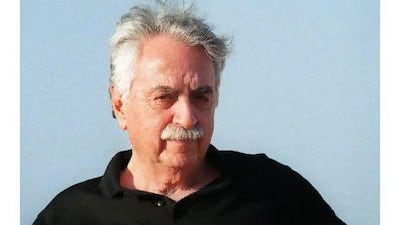For his entire life Abraham Serfaty was a thorn in the side of the authorities in Morocco, both during the days of the French protectorate, when he agitated against the colonial presence in his homeland and, later, under the repressive reign of King Hassan II, when he opposed Morocco's annexation of Western Sahara.
Exiled by the French authorities in 1952 for his nationalistic views, he returned to Morocco in 1956 after the country gained independence only to be exiled again in 1991. He gained international recognition not only as the country's most famous political prisoner but also, after the release of Nelson Mandela from Robben Island, as the longest-serving political prisoner in Africa.
A member of the minority Jewish population of predominantly Muslim Morocco, Serfaty openly rejected Zionism, describing it as a racist ideology. He declared his opposition to Israel's "law of return" and lent support instead to the Palestinian struggle. A resolute communist in his youth, he gained notoriety as one of the outspoken leaders of the Marxist-Leninist leftist organisation Illal Amam (Forward).
Born in Casablanca, Serfaty graduated from the prestigious École des Mines de Paris. In 1944, he joined the Moroccan Youth Communists and became involved in the fight against French colonialism. On his arrival in France to continue his studies the following year, he aligned himself with the French Communist Party.
Four years later, on returning to Morocco, he joined the Moroccan Communist Party. He served as a special adviser to the minister of economy from 1957 to 1960, working to promote the new mining policy of the newly independent country. In 1960, he became director of research and development of the Cherifian office of phosphates, but in 1968 his support for striking miners cost him his position. Subsequently, he moved to the Mohammedia School of Engineering in Rabat.
There, together with editor Abedellatif Laabi, he contributed to the artistic journal Souffles. Until it was banned in 1972, the magazine served as an essential mouthpiece for the creative energies so long silenced by the authorities in Morocco. At this crucial period in the self-realisation of the recently liberated country, Laabi and Serfaty were concerned to identify the myriad creative tributaries that informed Morocco's cultural identity - Berber, Judaic, Saharan, African and Mediterranean - beyond the two obvious ones, Arabic and Islamic.
By 1970, he had left the Communist Party and helped to establish Illal Amam. The organisation soon fell foul of the king and Serfaty was arrested by security forces in 1972 and tortured. Released after protests in the street, he went into hiding with a friend, Abdellatif Zeroual, who had also been targeted by the authorities. A French woman, Christine Daure, came to their aid. Later, she married Serfaty at the Kenitra high security prison where he was serving a life sentence.
Imprisoned again in 1974, he and five other dissidents were charged in 1977 with "plotting against state security" and handed a life sentence. He was one of the few political prisoners ever individually identified by King Hassan, who publicly denounced Serfaty's advocacy of Western Saharan self-determination as traitorous.
During the course of his 17 years in prison, the Danielle Mitterrand Foundation and other organisations campaigned for his liberation. He was released in 1991. But Hassan's notorious minister of interior and information, Driss Basri, created a legal loophole by which Serfaty was denied Moroccan citizenship. He, it would seem, was not actually Moroccan but Brazilian by dint of his father's work-related travels at the time of his birth. Thus, Basri could justify stripping Serfaty of his nationality and sending him into exile in Paris.
In 2000, he returned home following the accession to the throne of the reformist King Mohamed VI. Serfaty openly supported MVI, but expressed concern that if the government failed to meet the basic needs of its impoverished rural communities, such as education and welfare, the various Islamist groups at work in the country would swiftly fill the vacuum, with possibly disastrous consequences.
In the meantime, his views on the Sahrawis' call for independence for Western Sahara had altered slightly. Instead of calling for the Sahrawis' claim to be heeded, as the head of a royal commission in 2000 Serfaty promoted the concept of autonomy for the "Western Saharan provinces" within the kingdom, inspired by the autonomous regions of Catalonia and Andalusia in Spain.
He was the author of six books, including Prison Writings on Palestine (1992), The Memory of the Other (1993) and The Insubordinate: Jew, Moroccan and Rebel (2001).
Born 1926. Died November 18, 2010

